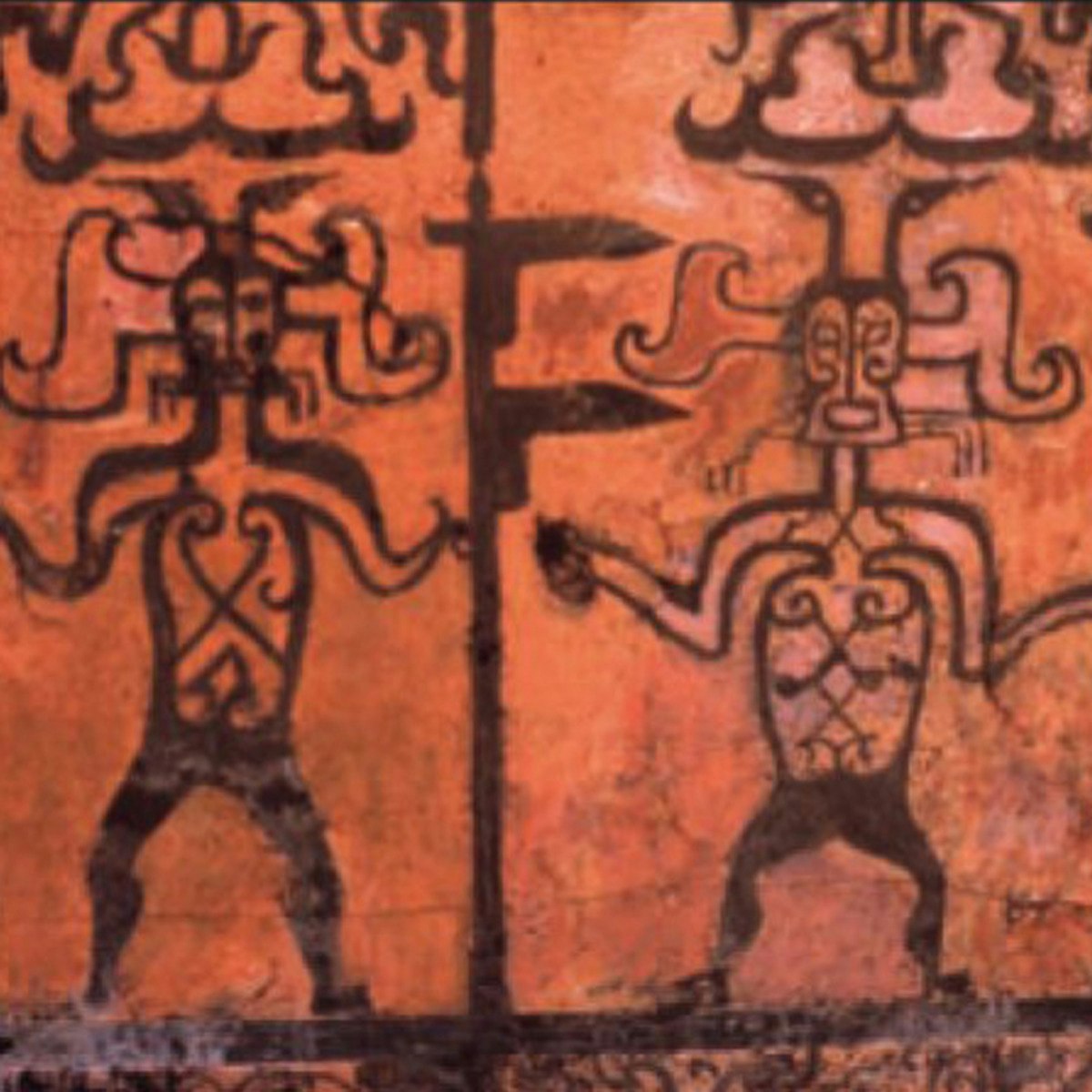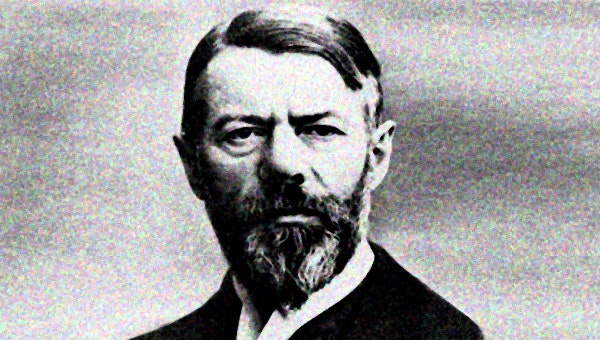Religious Studies Scholar
Exploring a Career as a Religious Studies Scholar
Religious Studies is the academic field dedicated to researching religious beliefs, behaviors, institutions, and texts. It examines religions as historical, cultural, and social phenomena using methods drawn from various disciplines within the humanities and social sciences. Scholars in this field approach religion from a non-confessional, analytical perspective, distinct from theological study which often operates from within a specific faith tradition.
Embarking on a path in Religious Studies can be intellectually exhilarating. You might find yourself deciphering ancient manuscripts, analyzing the complex interplay between religion and politics, or exploring the rich diversity of human spiritual expression across cultures. The field offers a unique lens through which to understand history, society, and the enduring human quest for meaning.
What is Religious Studies?
Defining the Discipline
Religious Studies is an interdisciplinary field that draws upon history, sociology, anthropology, philosophy, literature, art history, and more to understand religion in all its forms. It explores questions about the origins, development, and function of religious traditions worldwide. The goal is not to promote or critique any particular religion but to understand the role religion plays in human life and society.
Scholars investigate a vast range of topics, from the doctrines and rituals of major world religions like Christianity, Islam, Judaism, Hinduism, and Buddhism, to indigenous traditions, new religious movements, and secular belief systems. The scope includes examining sacred texts, religious art and architecture, social structures, ethical frameworks, and lived religious experiences.
This academic approach seeks objectivity and employs critical analysis. It involves comparing different traditions, contextualizing beliefs and practices within their historical and cultural settings, and theorizing about the nature of religion itself. It's a field that demands intellectual curiosity, analytical rigor, and an openness to diverse perspectives.
You can begin exploring the breadth of this field through introductory resources. Understanding the fundamental concepts and approaches is the first step towards deeper engagement.
These courses offer introductions to various religious traditions and concepts, providing a solid base for further study.
Religious Studies vs. Theology
A common point of confusion is the difference between Religious Studies and Theology. While both study religion, their approaches and goals differ significantly. Religious Studies is primarily descriptive and analytical, aiming to understand religion as a human phenomenon from an external, scholarly viewpoint. It employs secular methodologies from the humanities and social sciences.
Theology, conversely, typically operates from within a specific faith tradition. It often involves the systematic study of divine concepts, the interpretation of sacred texts according to established doctrines, and the exploration of religious beliefs from the perspective of a believer. While academic rigor is valued, the ultimate aim may include articulating, defending, or deepening understanding within that faith.
Think of it this way: a Religious Studies scholar might analyze the historical development of Christian doctrine regarding the Trinity, comparing different viewpoints and contextualizing them socially. A Christian theologian might explore the doctrine of the Trinity to articulate its meaning and significance for contemporary Christian belief and practice. Both are valid forms of inquiry, but their standpoints and objectives diverge.
Some courses may bridge this divide or focus on the administrative aspects within religious institutions, incorporating theological perspectives alongside practical management.
Why Study Religion Academically?
In an increasingly interconnected and multicultural world, understanding different religious traditions is crucial for effective communication, cultural competency, and navigating global affairs. Religion shapes personal identities, social values, political movements, and historical events. Studying it academically provides critical insights into these dynamics.
The skills developed in Religious Studies – critical thinking, textual analysis, research methods, cross-cultural understanding, and clear communication – are highly transferable. They are valuable not only in academia but also in fields like international relations, journalism, law, social work, museum curation, and education.
Furthermore, grappling with diverse worldviews and complex ethical questions fosters intellectual humility and enhances one's ability to engage constructively with differing perspectives. It encourages a nuanced understanding of human behavior and the deep-seated beliefs that motivate individuals and communities.
Key Concepts and Methodologies
Comparative Approaches
One of the cornerstones of Religious Studies is the comparative method. This involves examining similarities and differences across various religious traditions regarding specific themes, rituals, beliefs, or social structures. For example, a scholar might compare creation myths from different cultures or analyze varying concepts of the afterlife.
The goal of comparison is not to rank religions or determine superiority, but to identify patterns, understand variations, and gain deeper insights into the nature of religious phenomena. It helps scholars move beyond the specifics of one tradition to develop broader theories about religion itself.
Effective comparison requires careful attention to context, avoiding superficial similarities or imposing categories from one tradition onto another inappropriately. It demands sensitivity and a commitment to understanding each tradition on its own terms before drawing parallels or contrasts.
Exploring diverse mythologies and worldviews provides a rich ground for comparative study.
These books offer insights into distinct mythologies and religious texts ripe for comparative analysis.
Textual Analysis
Many religious traditions possess sacred texts that are central to their beliefs and practices. Religious Studies scholars employ various methods of textual analysis, often borrowed from literary criticism and history, to interpret these writings. This involves examining the language, structure, historical context, authorship, and reception history of texts.
Techniques might include historical-critical methods (analyzing texts in their original historical context), literary analysis (examining narrative structure, symbolism, and genre), and reception history (tracing how texts have been interpreted and used over time by different communities). Scholars often need proficiency in ancient languages like Hebrew, Greek, Latin, Sanskrit, Classical Chinese, or Arabic.
The aim is to understand the meaning and significance of these texts within their traditions and as cultural artifacts. This differs from devotional reading, focusing instead on critical interpretation and contextual understanding.
Learning ancient languages or engaging directly with foundational texts is crucial for this type of work.
These texts are foundational within their respective traditions and subjects of extensive scholarly analysis.
Anthropological and Sociological Methods
Religion is not just about beliefs and texts; it's a lived reality embedded in social practices and cultural contexts. Anthropological and sociological approaches focus on understanding religion as it is practiced and experienced by communities. This often involves ethnographic fieldwork – immersing oneself in a community to observe rituals, conduct interviews, and understand perspectives from the inside.
Sociologists of religion might use surveys, statistical analysis, and social theory to examine the relationship between religion and social factors like class, ethnicity, gender, and political affiliation. Anthropologists often focus on qualitative methods, seeking deep cultural understanding through participant observation and detailed descriptions of religious life.
These methods provide invaluable insights into how religious beliefs translate into action, shape social identities, and influence community dynamics. They emphasize the importance of studying religion in its social and cultural environment.
Studying specific cultural and historical contexts helps ground anthropological and sociological analysis.
Philosophical and Historical Frameworks
Philosophy of religion examines fundamental questions about religious concepts using logical analysis. Scholars might analyze arguments for the existence of God, the problem of evil, the nature of religious experience, or the relationship between faith and reason. This approach prioritizes conceptual clarity and logical consistency.
Historical methods are essential for tracing the development of religious traditions over time. This involves working with primary sources, understanding historical contexts, and reconstructing past events and belief systems. Historians of religion analyze how traditions change, adapt, and interact with broader historical forces.
Both philosophical and historical approaches provide crucial frameworks for interpreting religious phenomena. They help scholars to contextualize beliefs, understand intellectual traditions, and critically evaluate religious claims and historical narratives.
Engaging with philosophical traditions and historical periods provides essential context.
Formal Education Pathways
Undergraduate Studies
A Bachelor of Arts (BA) in Religious Studies typically provides a broad introduction to the field. Coursework usually covers major world religions, foundational theories and methods, and specialized electives on specific traditions, regions, or themes (like religion and politics, or mysticism).
Undergraduate programs emphasize developing critical reading, analytical writing, and research skills. Students learn to engage with primary texts, evaluate scholarly arguments, and articulate their own interpretations clearly. Language study, while not always mandatory, is often strongly encouraged, especially for students considering graduate work.
An undergraduate degree can serve as a foundation for graduate studies in Religious Studies or related fields, or it can prepare students for careers requiring strong analytical and communication skills. Online platforms like OpenCourser offer courses that can supplement formal studies or provide introductory exposure to the field for those exploring their options.
Graduate Programs: MA and PhD
A Master of Arts (MA) in Religious Studies allows for greater specialization. Programs often require advanced coursework, language proficiency, and a master's thesis based on original research. An MA can be a stepping stone to a PhD or prepare students for careers in secondary education, museum work, or non-profit organizations.
The Doctor of Philosophy (PhD) is the terminal degree for those aspiring to become university professors and researchers in Religious Studies. PhD programs involve intensive coursework, comprehensive exams demonstrating broad knowledge of the field and specialized expertise, language requirements (often two or more research languages), and the completion of a dissertation – a substantial work of original scholarship.
Gaining admission to reputable PhD programs is highly competitive. Strong academic performance, compelling research interests, excellent writing samples, and strong letters of recommendation are crucial. The path demands significant intellectual commitment and perseverance over several years.
These courses delve into specific areas that might align with graduate-level specialization.
Postdoctoral Research and Beyond
After completing a PhD, many scholars pursue postdoctoral research positions ("postdocs"). These are temporary appointments, typically lasting one to three years, that allow recent graduates to deepen their research, publish their dissertation work, gain teaching experience, and strengthen their credentials for permanent academic positions.
Postdocs provide valuable time for focused research and publication, which are critical for success in the highly competitive academic job market. They also offer opportunities for networking and collaboration within the scholarly community.
The transition from PhD to a stable academic career often involves navigating postdoc positions and applying for numerous faculty jobs. It requires resilience, a strong publication record, and a clear research agenda.
Career Progression for Religious Studies Scholars
The Academic Path: Tenure Track
The traditional career goal for many PhDs in Religious Studies is a tenure-track position at a university or college. This path typically starts with an Assistant Professor role, involves rigorous expectations for research (publications), teaching effectiveness, and service to the institution (committee work).
After several years (usually 5-7), Assistant Professors undergo a review for tenure and promotion to Associate Professor. Tenure provides job security and academic freedom. Further promotion to Full Professor recognizes continued significant contributions to scholarship, teaching, and service.
However, it's crucial to be realistic: tenure-track positions in the humanities, including Religious Studies, are scarce and highly competitive. Many PhD graduates face challenges securing such roles. Data from organizations like the American Academy of Religion often highlights the competitive nature of the academic job market.
Alternative Academic Roles
Beyond the tenure track, there are other academic and research-related roles. These include positions as lecturers, adjunct instructors, research associates, academic advisors, or administrators within university departments or research centers. Libraries also employ subject specialists.
While these positions may offer less job security or lower compensation than tenure-track roles, they allow individuals to remain engaged in academic life, teaching, and sometimes research. Some may serve as stepping stones towards more permanent positions, while others represent fulfilling long-term career paths in themselves.
These roles still leverage the expertise gained through advanced study in Religious Studies, contributing to the educational mission of institutions.
Careers Beyond Academia
The skills honed in Religious Studies are applicable in diverse sectors outside universities. Graduates find roles in museums (curation, education), archives, libraries, publishing houses (editing), journalism (reporting on religion, culture, or international affairs), and secondary education.
Expertise in cross-cultural understanding and religious literacy is valuable in government (e.g., State Department, intelligence agencies), non-governmental organizations (NGOs) focused on international aid or interfaith dialogue, consulting firms advising on cultural competency, and human resources.
For those considering a career change or exploring options beyond academia, it's helpful to identify the transferable skills gained – critical analysis, research, complex problem-solving, communication, empathy – and articulate how they apply to different professional contexts. Networking and gaining relevant experience through internships or volunteer work can be crucial.
Ethical Considerations in Religious Scholarship
Cultural Sensitivity and Representation
Engaging with diverse religious traditions requires profound cultural sensitivity. Scholars must strive to represent beliefs and practices accurately and respectfully, avoiding stereotypes or ethnocentric biases. This is particularly crucial in ethnographic fieldwork, where researchers interact directly with individuals and communities.
Ethical fieldwork involves obtaining informed consent, ensuring anonymity or confidentiality where appropriate, and being mindful of the potential impact of research on the community studied. Representing others' beliefs and experiences carries significant responsibility; scholars must be reflexive about their own positionality and potential biases.
Handling sacred texts, objects, or spaces also demands respect according to the traditions associated with them. Understanding and adhering to cultural protocols is essential for building trust and conducting ethical research.
Objectivity, Belief, and Bias
A central challenge in Religious Studies is navigating the relationship between scholarly objectivity and personal beliefs or lack thereof. The academic standard requires striving for neutrality and analyzing religious phenomena critically, regardless of one's personal background.
This doesn't mean scholars must lack personal convictions, but rather that they should be aware of their own potential biases and employ rigorous methodologies to ensure their analysis is evidence-based and fair. Transparency about one's perspective can sometimes be appropriate, but the primary commitment is to scholarly inquiry.
Maintaining this balance requires self-awareness and adherence to disciplinary standards. It involves critically examining sources, considering multiple interpretations, and distinguishing between descriptive analysis and normative judgment.
Exploring diverse belief systems, including those addressing fundamental life questions, can challenge and refine one's understanding of objectivity.
The Politics of Religious Studies
Research on religion inevitably intersects with political, social, and cultural sensitivities. Scholarly interpretations can have real-world implications, influencing public perception, policy debates, or intergroup relations. Scholars must be aware of the potential political dimensions of their work.
Funding sources, institutional pressures, and broader geopolitical contexts can also shape research agendas and interpretations. Maintaining academic freedom and integrity while navigating these complex dynamics is an ongoing ethical consideration for the field.
Furthermore, contemporary discussions around decolonizing academic frameworks challenge scholars to critically examine historical power imbalances embedded within the discipline and strive for more inclusive and equitable approaches to studying global religions.
The Role of Online Learning
Building Foundational Knowledge
Online courses are an excellent resource for building a solid foundation in Religious Studies. Whether you are a high school student exploring interests, an undergraduate supplementing coursework, or a professional considering a career pivot, online platforms offer accessible introductions to diverse traditions and key methodologies.
Courses covering world religions, specific texts, or historical periods can provide the necessary background knowledge to engage with more advanced material. The flexibility of online learning allows individuals to study at their own pace and fit learning around existing commitments.
Platforms like OpenCourser aggregate offerings from various institutions, making it easier to find courses that match your specific interests and learning goals. Many courses offer certificates upon completion, which can demonstrate initiative and foundational knowledge.
These introductory courses are ideal starting points available online.
Supplementing Formal Education and Professional Development
For students already enrolled in degree programs, online courses can supplement their learning by offering specialized topics not covered in their curriculum or providing deeper dives into specific areas of interest. They can also be invaluable for acquiring necessary language skills crucial for research.
Working professionals can use online courses for continuing education, enhancing cultural competency relevant to their field, or exploring Religious Studies for personal enrichment. The skills developed—critical analysis, cross-cultural understanding—are beneficial across many professions.
OpenCourser's Learner's Guide offers tips on how to effectively integrate online learning into your educational or professional development strategy, including advice on structuring self-study and staying motivated.
Specialized online courses allow learners to deepen their knowledge in specific areas.
Projects and Portfolio Building
Engaging actively with course material enhances learning. Supplementing online coursework with independent projects can solidify understanding and build a portfolio demonstrating your skills and interests. This is particularly valuable for those aiming for graduate studies or careers requiring research abilities.
Project ideas could include writing a comparative analysis paper based on themes explored in multiple courses, creating an annotated bibliography on a specific topic, developing a digital humanities project (like mapping pilgrimage routes discussed in a course), or translating short passages from a sacred text (if language skills permit).
Such projects allow you to apply theoretical knowledge, practice research methodologies, and showcase your capacity for independent scholarly work. They serve as tangible evidence of your engagement with the field beyond passive course consumption.
Challenges and Opportunities
Navigating the Academic Job Market
As mentioned, the academic job market for humanities fields, including Religious Studies, is challenging. Securing a stable, tenure-track position requires exceptional qualifications, persistence, and often a degree of luck. Aspiring academics should be aware of these realities early on.
However, challenges also spur innovation. Scholars are increasingly exploring interdisciplinary collaborations, engaging with public audiences through digital platforms, and demonstrating the relevance of their expertise beyond traditional academic settings. Developing a diverse skill set and being open to various career paths is advantageous.
Resources from academic associations and university career services can provide guidance on navigating the job market and exploring both academic and non-academic career options. Staying informed about trends in higher education and humanities funding is also important. According to the U.S. Bureau of Labor Statistics, overall employment for postsecondary teachers is projected to grow, but competition for tenure-track positions remains intense, especially in the humanities.
The Value of Religious Literacy
Despite academic market challenges, the need for religious literacy in society is arguably growing. Understanding diverse religious perspectives is vital for addressing issues ranging from international conflict and social cohesion to healthcare ethics and environmental concerns.
Religious Studies scholars possess unique expertise to contribute to public understanding and informed dialogue. Opportunities exist in public scholarship, policy advising, interfaith initiatives, and cultural competency training. Communicating complex ideas clearly to non-specialist audiences is a valuable skill.
The field contributes significantly to a well-informed citizenry capable of navigating religious diversity constructively. Highlighting this societal relevance can open doors beyond traditional academic roles.
Frequently Asked Questions
Can I work outside academia with a Religious Studies degree?
Absolutely. The critical thinking, research, writing, and cross-cultural communication skills developed in Religious Studies are highly valued in many fields. Graduates pursue careers in journalism, law, government service, non-profit management, museum curation, library science, secondary education, international relations, social work, and more.
Focus on identifying and articulating your transferable skills. Networking, internships, and gaining practical experience related to your target field are key to transitioning successfully into non-academic roles.
How does Religious Studies differ from seminary training?
Religious Studies is the academic, non-confessional study of religion as a historical and cultural phenomenon. Seminary training, typically undertaken within a specific faith tradition, prepares individuals for religious leadership roles (like ministry, priesthood, rabbinate) and involves theological study, spiritual formation, and practical ministry skills.
While both involve studying religious texts and traditions, their goals, methods, and perspectives differ significantly. Religious Studies emphasizes critical analysis from an objective standpoint, while seminary training focuses on formation and practice within a faith community.
What languages are important to learn?
Language needs depend heavily on your area of specialization. Classical languages like Hebrew, Greek, Latin, Sanskrit, Classical Arabic, and Classical Chinese are essential for studying the foundational texts of many major traditions. Modern languages are necessary for fieldwork and studying contemporary religious life in specific regions.
For European religious history, languages like German and French are often crucial for engaging with secondary scholarship. Discuss language requirements with advisors early in your academic career, as proficiency takes significant time and effort to acquire.
Online courses can be a great way to start learning relevant languages.
How should I handle my personal beliefs during research?
Maintain scholarly objectivity by grounding your analysis in evidence and established methodologies. Be aware of your own biases and assumptions, whether religious or secular. The goal is critical understanding, not advocacy or critique based on personal conviction.
Transparency about your perspective might be appropriate in some contexts, but it should not compromise analytical rigor. Engage respectfully with all traditions studied, focusing on accurate description and interpretation according to scholarly standards.
What are alternatives if I don't get a tenure-track job?
Many fulfilling careers leverage Religious Studies expertise outside the traditional tenure track. Consider alternative academic roles (lecturer, researcher, administrator), secondary education, museums, libraries, archives, publishing, journalism, government analysis, non-profit work (especially international or interfaith organizations), cultural consulting, or fields like law or social work where cultural understanding is valuable.
Focus on transferable skills and explore how your specialized knowledge can apply in different sectors. Proactive career planning and networking are essential. Remember that the intellectual journey and skills gained have value regardless of the specific career path taken.
Pursuing a career as a Religious Studies Scholar is a path of deep intellectual engagement and requires significant dedication. While the traditional academic route is challenging, the knowledge and skills acquired offer broad applicability and contribute valuable perspectives to understanding our complex world. Whether aiming for academia or other sectors, a background in Religious Studies fosters critical thinking and cross-cultural insight – assets in any professional endeavor.






















